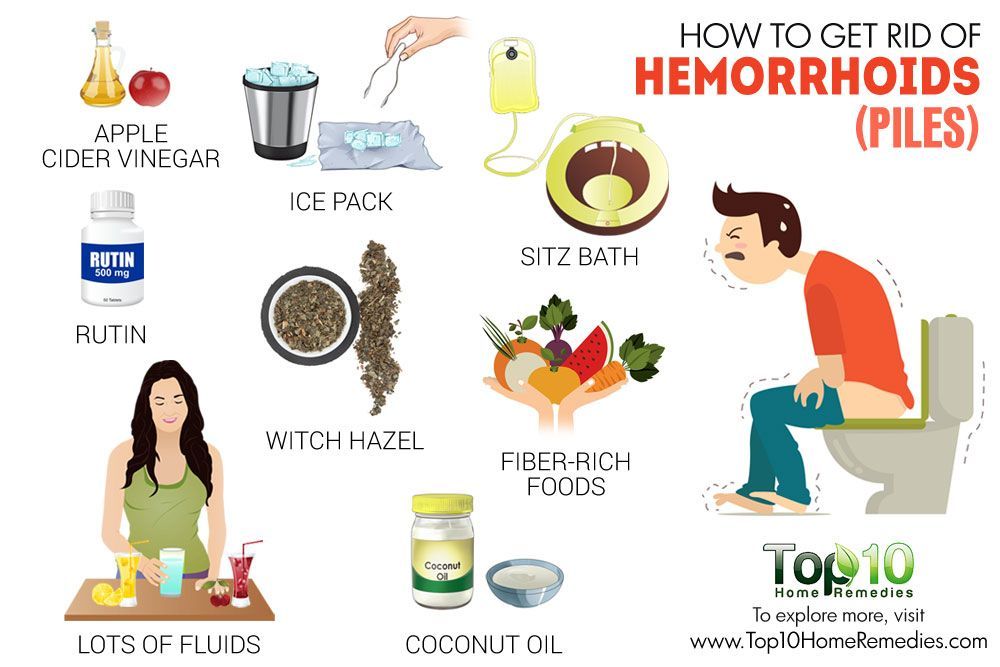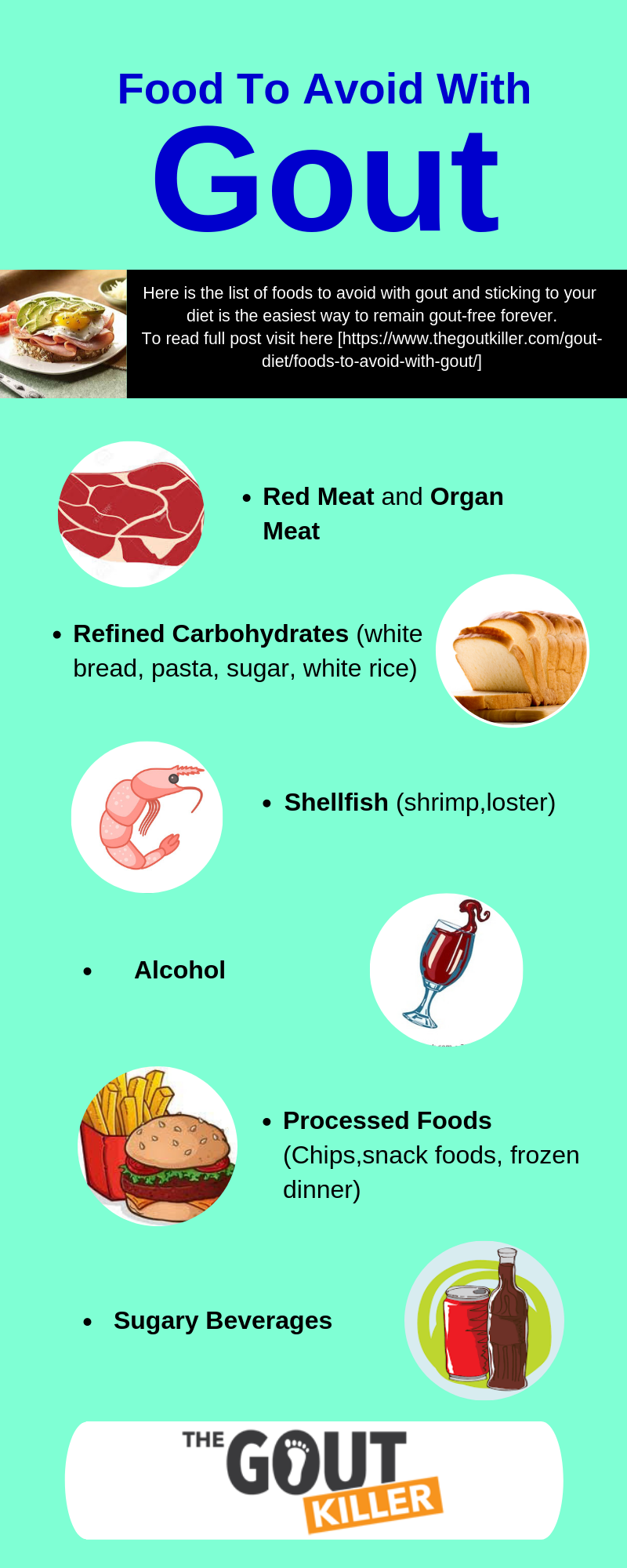What is the best way to get rid of gout. Ultimate Guide: Best Foods to Eat for Treating and Preventing Gout
What foods should you eat to manage gout symptoms. How can dietary changes help prevent gout flare-ups. Which foods are best to avoid if you have gout. What is the optimal diet plan for people with gout.
Understanding Gout: Causes and Symptoms
Gout is a form of arthritis characterized by sudden, severe attacks of pain, swelling, redness, and tenderness in the joints. It typically affects the joint at the base of the big toe, but can occur in any joint. Gout occurs when urate crystals accumulate in your joint, causing inflammation and intense pain.
The primary cause of gout is an excess of uric acid in the bloodstream. Uric acid is produced when the body breaks down purines, which are substances found naturally in the body and in certain foods. When there’s too much uric acid in the system, it can form sharp, needle-like crystals in a joint or surrounding tissue, leading to gout symptoms.
Common Symptoms of Gout
- Intense joint pain, especially in the big toe
- Lingering discomfort after the most severe pain subsides
- Inflammation and redness in affected joints
- Limited range of motion in joints
- Tophi – hard lumps under the skin near joints
The Role of Diet in Gout Management
Diet plays a crucial role in managing gout symptoms and preventing flare-ups. By making informed food choices, individuals with gout can significantly reduce their uric acid levels and minimize the risk of painful attacks. A balanced diet that focuses on plant-based foods and limits high-purine ingredients can be an effective strategy for gout management.

Can dietary changes alone cure gout. While diet modifications can greatly help manage gout symptoms, they are not a standalone cure. A comprehensive approach that includes medication, lifestyle changes, and dietary adjustments is often necessary for effective gout management.
Foods to Avoid with Gout
To manage gout effectively, it’s essential to limit or avoid certain foods that can trigger flare-ups or increase uric acid levels in the body. These include:
High-Purine Foods
- Red meats (beef, lamb, pork)
- Organ meats (liver, kidneys, sweetbreads)
- Certain seafood (sardines, anchovies, mussels, scallops, trout)
- Game meats (venison, goose)
Alcohol
Alcoholic beverages, especially beer and spirits, can significantly increase the risk of gout attacks. They not only contain purines but also interfere with the body’s ability to excrete uric acid.
Sugar-Sweetened Beverages
Drinks high in fructose, such as sodas and fruit juices with added sugars, can raise uric acid levels and contribute to weight gain, another risk factor for gout.

Processed Foods
Many processed foods contain hidden purines and added sugars, which can exacerbate gout symptoms. These include packaged snacks, frozen meals, and canned foods with high sodium content.
Gout-Friendly Foods to Include in Your Diet
While it’s important to know which foods to avoid, focusing on what you can eat is equally crucial for managing gout. A diet rich in the following foods can help lower uric acid levels and reduce inflammation:
Low-Fat Dairy Products
Research suggests that low-fat dairy products may have a protective effect against gout. Options include skim milk, low-fat yogurt, and cottage cheese.
Cherries and Berry Fruits
Cherries, especially tart cherries, have been shown to reduce uric acid levels and decrease the frequency of gout attacks. Other berries like strawberries and blueberries also have anti-inflammatory properties.
Vegetables
Most vegetables are low in purines and high in fiber, making them excellent choices for a gout-friendly diet. Focus on leafy greens, cruciferous vegetables, and colorful options like bell peppers and carrots.

Whole Grains
Whole grains provide essential nutrients and fiber without significantly impacting uric acid levels. Options include brown rice, quinoa, oats, and whole wheat bread.
Lean Proteins
While some proteins should be limited, lean options like chicken, turkey, and fish (in moderation) can be part of a balanced gout diet.
Hydration and Gout Management
Proper hydration is crucial for managing gout. Drinking adequate water helps dilute uric acid in the blood and promotes its excretion through urine. How much water should someone with gout drink daily. While individual needs may vary, aiming for at least 8-10 glasses of water per day is a good starting point.
Best Beverages for Gout
- Water (plain or infused with fruits)
- Herbal teas
- Coffee (in moderation)
- Low-fat milk
- Tart cherry juice
Is coffee beneficial for gout. Some studies suggest that moderate coffee consumption may lower the risk of gout attacks. However, it’s important to consume coffee in moderation and avoid adding sugar or high-fat creamers.

The Mediterranean Diet and Gout
The Mediterranean diet, known for its heart-healthy benefits, may also be beneficial for individuals with gout. This eating pattern emphasizes:
- Fruits and vegetables
- Whole grains
- Legumes and nuts
- Olive oil as the primary source of fat
- Moderate consumption of fish and poultry
- Limited red meat intake
How does the Mediterranean diet help with gout. The Mediterranean diet’s focus on plant-based foods, healthy fats, and limited red meat consumption can help reduce inflammation and lower uric acid levels. Additionally, its emphasis on whole foods and limited processed items aligns well with gout management guidelines.
Meal Planning for Gout Management
Creating a meal plan that accommodates gout management while ensuring proper nutrition can be challenging. Here’s a sample menu to inspire gout-friendly meals:
Breakfast Options
- Oatmeal with berries and a sprinkle of nuts
- Whole grain toast with avocado and a poached egg
- Greek yogurt parfait with low-fat granola and fresh fruit
Lunch Ideas
- Grilled chicken salad with mixed greens and vinaigrette dressing
- Lentil soup with whole grain bread
- Quinoa bowl with roasted vegetables and hummus
Dinner Suggestions
- Baked salmon with roasted Brussels sprouts and sweet potato
- Vegetarian chili with mixed beans and cornbread
- Grilled tofu stir-fry with brown rice and assorted vegetables
How often should someone with gout eat. Regular, balanced meals are important for managing gout. Aim for 3 main meals and 1-2 small snacks throughout the day to maintain stable blood sugar levels and prevent overeating, which can contribute to weight gain and increased uric acid production.

Supplements and Natural Remedies for Gout
While diet should be the primary focus for managing gout through nutrition, certain supplements and natural remedies may offer additional support. However, it’s crucial to consult with a healthcare provider before starting any new supplement regimen.
Potential Beneficial Supplements
- Vitamin C: May help lower uric acid levels
- Cherry extract: Concentrated form of cherries’ anti-inflammatory compounds
- Omega-3 fatty acids: Can help reduce inflammation
- Magnesium: May aid in lowering uric acid levels
Are natural remedies effective for treating gout. While some natural remedies show promise in managing gout symptoms, they should not replace prescribed medications or dietary changes. Always discuss natural remedies with your healthcare provider to ensure they are safe and appropriate for your individual case.
Weight Management and Gout
Maintaining a healthy weight is crucial for managing gout. Excess body weight can increase uric acid production and make it harder for the kidneys to eliminate uric acid efficiently. Losing weight, if overweight or obese, can significantly improve gout symptoms and reduce the frequency of flare-ups.

Tips for Healthy Weight Loss with Gout
- Focus on nutrient-dense, low-calorie foods
- Incorporate regular physical activity, as approved by your doctor
- Practice portion control
- Avoid crash diets, which can trigger gout attacks
- Stay hydrated to support metabolism and uric acid excretion
How much weight loss is beneficial for gout management. Even modest weight loss can have significant benefits. Losing 5-10% of body weight can lead to meaningful improvements in gout symptoms and overall health.
The Importance of Consistency in Gout Diet
Consistency is key when it comes to managing gout through diet. While occasional indulgences may not immediately trigger a gout attack, regularly consuming high-purine foods or excessive alcohol can lead to a buildup of uric acid over time. Maintaining a consistent, gout-friendly diet helps keep uric acid levels stable and reduces the risk of painful flare-ups.
Strategies for Maintaining a Gout-Friendly Diet
- Meal prep to ensure healthy options are always available
- Keep a food diary to track triggers and successful meals
- Gradually introduce dietary changes to make them more sustainable
- Educate family and friends about your dietary needs
- Plan ahead for social events and dining out
How long does it take to see improvements in gout symptoms through dietary changes. While individual responses may vary, many people start to see improvements in their gout symptoms within a few weeks to a few months of consistently following a gout-friendly diet. However, it’s important to continue these dietary habits long-term for sustained benefits.

Combining Diet with Other Gout Management Strategies
While diet plays a crucial role in managing gout, it’s most effective when combined with other treatment strategies. A comprehensive approach to gout management typically includes:
- Medications prescribed by a healthcare provider
- Regular exercise, as approved by a doctor
- Stress management techniques
- Adequate sleep and rest
- Regular medical check-ups and uric acid level monitoring
How does exercise impact gout management. Regular, low-impact exercise can help manage weight, reduce stress, and improve overall health, all of which contribute to better gout control. However, it’s important to avoid high-impact activities during acute gout attacks and to stay hydrated during exercise.
Navigating Social Situations with Gout
Managing gout doesn’t mean you have to avoid social situations or dining out. With some planning and strategies, you can enjoy social events while sticking to your gout-friendly diet:
Tips for Dining Out with Gout
- Research restaurant menus in advance
- Don’t be afraid to ask for modifications to dishes
- Choose grilled or baked options over fried foods
- Opt for vegetable-based side dishes
- Limit or avoid alcohol consumption
Handling Social Pressure
How can you politely decline foods that may trigger gout. Be honest about your condition and dietary needs. Most people will be understanding if you explain that certain foods can trigger painful symptoms. Offer to bring a gout-friendly dish to share at gatherings, or suggest restaurants that offer suitable options for your diet.

The Future of Gout Management: Emerging Research and Treatments
While dietary management remains a cornerstone of gout treatment, ongoing research continues to explore new avenues for managing this condition. Some areas of current interest include:
- Gut microbiome’s role in gout development and management
- Gene therapy approaches to uric acid metabolism
- New medications targeting uric acid production and excretion
- Personalized nutrition based on genetic profiles
What promising developments are on the horizon for gout treatment. Researchers are investigating new drugs that may more effectively lower uric acid levels with fewer side effects. Additionally, there’s growing interest in understanding how individual genetic differences affect gout risk and treatment response, which could lead to more personalized treatment approaches in the future.
In conclusion, managing gout through diet requires a comprehensive understanding of food choices, consistent application of dietary principles, and integration with other treatment strategies. By focusing on a plant-based, low-purine diet, staying hydrated, maintaining a healthy weight, and working closely with healthcare providers, individuals with gout can significantly improve their quality of life and reduce the frequency and severity of gout attacks. Remember, every person’s experience with gout is unique, so it’s essential to work with healthcare professionals to develop a personalized management plan that addresses your specific needs and health goals.

What to eat to treat and prevent gout
People with gout may benefit from avoiding foods that are high in purines, such as red meats, shellfish, alcohol, and processed foods. Meanwhile, a diet that focuses mainly on plant foods may help manage gout by lowering uric acid.
Gout is a form of arthritis that can happen when too much uric acid in the body causes crystals to form in the joints, resulting in pain and inflammation.
Diet plays an important role in gout as certain foods can cause excess uric acid, or hyperuricemia.
Additionally, the Centers for Disease Control and Prevention (CDC) advise that eating a healthy diet and avoiding becoming overweight can help someone manage their symptoms.
This article looks at how a person can eat to manage and prevent gout, including which foods to eat and which foods to avoid.
When planning a diet for gout, someone should aim to limit or avoid the following types of foods.
Foods high in purines
The body produces purine compounds, and people also ingest them from food.
Purines can increase the risk of urate crystals forming in the joints and tissues, so avoiding them in food can help manage the condition.
Arthritis Foundation advises which foods and drinks contain high or moderate amounts of purines:
- all types of alcoholic drinks
- some fish, including sardines, anchovies, trout, herring, and haddock
- shellfish and seafood, such as mussels, scallops, crab, lobster, oysters, and shrimp
- high purine meats, such as bacon, turkey, veal, sausage, and venison
- moderate purine meats, such as beef, chicken, pork, duck, and ham
- organ meats, such as liver, kidneys, and sweetbreads
Sugar-sweetened drinks and processed foods
Some research suggests that consuming sugar can cause excess uric acid, with sugary drinks and processed foods being the main sources of fructose in the Western diet.
People should avoid or limit the following foods and drinks to help prevent gout flare-ups:
- sugar-sweetened sodas and juice drinks
- processed foods containing added sugars
Foods with a high glycemic index
The glycemic index (GI) measures how specific foods affect blood sugar levels.
Some carbohydrate foods with a higher GI score can spike blood sugar and contribute to weight gain — a risk factor for gout.
A 2017 study found that eating lower GI foods lowered uric acid, which may help prevent gout flares.
People can help to manage gout by avoiding or limiting the following high GI foods:
- refined carbohydrates, such as white bread, pasta, and rice
- cakes, biscuits, cookies, pancakes, and sweet treats
- higher GI vegetables and fruits, such as potatoes, bananas, and watermelon
- low-fiber, high-sugar breakfast cereals, such as puffed rice, cornflakes, and frosted flakes
People with gout should eat a balanced and varied diet to get adequate nutrients to stay healthy and manage their weight. Eating whole foods and avoiding processed foods and takeaways is a sensible starting point, and adding in the following foods can help.
Plant-based whole foods
Some plant-based foods contain purines, but evidence suggests that plant-based diets don’t increase uric acid in most individuals and may even be beneficial.
The Dietary Approaches To Stop Hypertension (DASH) Diet, which emphasizes a higher intake of plant foods and low-fat dairy and less red meat, lowered uric acid in a 2017 trial.
Eating plenty of plant-based whole foods and limiting processed foods can also help someone manage their weight and risk of developing or flaring gout. People should try to include the following as part of a balanced diet:
- fruits, especially those with more fiber and less sugar such as berries, cherries, and apples
- vegetables of different colors, especially non-starchy vegetables such as broccoli, leafy greens, mushrooms, tomatoes, green peas, zucchini, cauliflower, and eggplant
- lentils, beans, and legumes
- nuts and seeds such as Brazil nuts, cashews, walnuts, sunflower seeds, pumpkin seeds, and chia seeds
- whole grains such as brown rice, buckwheat, quinoa, barley, and oats
- low-fat dairy products and eggs
- soy products, including tofu, tempeh, and edamame
Cherries
According to a 2019 review, cherries may reduce the inflammatory response to uric acid crystals. One older study from 2013 showed a 35% lower risk of gout attacks in gout patients who consumed cherries for two days.
One older study from 2013 showed a 35% lower risk of gout attacks in gout patients who consumed cherries for two days.
People who wish to try cherries for gout can consume them as fresh, canned, or frozen to use in sauces, compotes, and breakfast toppings.
Alternatively, someone can try drinking tart Montmorency cherry juice or taking a supplemental extract.
The following is an example meal plan with meal options for someone with gout.
People can also ask for help planning meals from a registered dietitian or nutritionist.
| Meal | Day 1 | Day 2 | Day 3 |
|---|---|---|---|
| Breakfast | Oatmeal made with non-fat milk or plant-based milk, topped with cherry compote. | Greek yogurt or cottage cheese with nuts and blueberries. | Avocado, eggs, or scrambled tofu on a wholegrain breakfast muffin. |
| Lunch | Hummus and salad in a wholemeal wrap. | Pea, red onion, and mushroom frittata or omelet with a green salad. | Quinoa salad with broccoli, salmon, peppers, tomatoes, edamame beans, and scallions. |
| Dinner | Tofu curry with brown rice and steamed greens. | Baked sweet potato topped with bean chili and a green side salad. | Chicken or lean beef meatballs with wholegrain spaghetti and a tomato sauce with a green salad. |
Purines in animal products such as processed meats, including sausage, bacon, and cold cuts, certain fish, and seafood can lead to higher uric acid in the body. This may trigger gout, causing urate crystals to form in the joints and tissues. However, people aiming to prevent gout can still eat lower purine fish 2–3 times per week and even eat higher purine meats and foods in moderation.
People with gout should also avoid consuming alcohol during flare-ups.
Although plant-based foods also contain purines, a predominantly plant-based diet may benefit people with gout providing it is based on whole foods and avoids too many processed foods.
Being mindful of excess added sugar consumption and maintaining a moderate weight are also sensible strategies to prevent and manage gout.
Method and how it works
RICE is an acronym for a type of treatment. Doctors usually recommend this treatment when a person has injured a muscle, tendon, or ligament. These are called soft tissue injuries.
RICE stands for:
- Rest: Avoiding use of the injured area.
- Ice: Applying ice packs or bags of frozen vegetables to the area, without them touching the skin directly.
- Compression: Wrapping the injured area with an elastic bandage to provide support, reduce blood flow, and limit swelling.
- Elevation: Keeping the area raised above the level of the heart to reduce swelling.
Soft tissue injuries include sprains, strains, and contusions, which are commonly known as bruises.
These injuries are often sports-related. One study reported that sports are responsible for about 50 percent of all musculoskeletal injuries sustained in the United States.
One study reported that sports are responsible for about 50 percent of all musculoskeletal injuries sustained in the United States.
In this article, we describe the correct way to perform RICE and explore why it may be useful.
Share on PinterestAn ice pack may help to numb the affected area, and compression may keep the swelling under control.
The benefits of the RICE method can be explained by stage:
- Rest: Immobilization prevents further injury and gives the body time to recover.
- Ice: Cold reduces pain by numbing the affected area.
- Compression: Pressure keeps swelling under control.
- Elevation: Keeping the injured body part above the heart reduces swelling and the associated pain and discomfort.
A review of studies conducted in 2012 found that there was not enough data to prove that the RICE method effectively treated sprained ankles.
A 2015 review associated with the Red Cross confirmed that ice was effective immediately after an injury. However, the researchers determined that immobilizing an injured limb may not be helpful. They found no evidence to support elevation. They also found indications that compression may not aid strains or sprains.
However, the researchers determined that immobilizing an injured limb may not be helpful. They found no evidence to support elevation. They also found indications that compression may not aid strains or sprains.
However, the RICE treatment method remains widely and frequently recommended for a wide variety of injuries.
It is not always necessary to see a doctor before trying the RICE method.
Following the steps below may help to treat a mild or moderate injury. Begin immediately after an injury, and continue treatment for the next 24–48 hours.
- Rest the injured area. Avoid moving it and try to keep weight off it. Use splints, braces, canes, or crutches when available.
- Ice the injury for 20 minutes four to eight times a day. This is especially necessary within the first 3 days. Never allow ice to touch the skin directly.
- Compression is effective for up to 1 week. Wrap the bandage tightly enough to support the area, without cutting off blood flow.

- Elevation reduces swelling and bruising by making it more difficult for blood to reach the injury. Experts say it is best to elevate the area for 2–3 hours a day.
Seek medical care if:
- the injured person cannot put any weight on the area
- the area is numb or misshapen
- the injury is recurring
Always exercise caution when returning to everyday activities.
Share on PinterestSprains, bruises, and strains may be treated using the RICE method.
It is most useful for mild to moderate injuries. Doctors usually recommend the RICE method for:
- sprains
- strains
- bruises
- other soft tissue injuries
People often sustain sprains by tripping, falling, or through sudden twisting motions.
Repeated movements and lifting heavy objects the wrong way can cause strains.
The method is not recommended to treat broken bones or more serious injuries to soft tissue. These may require medication, surgery, or extensive physical therapy.
The RICE method remains the most commonly recommended treatment for soft tissue injuries.
However, not all healthcare providers are completely on board.
Most support the idea of resting, or immobilizing, an injured body part immediately after an injury. Yet, some studies have shown that deliberate, guided movements can be helpful as recovery progresses.
This might involve:
- massage
- stretching
- conditioning
Some physical therapists take a dim view of applying ice and other efforts to prevent inflammation. A study from 2014 suggests that applying ice might actually interfere with the body’s ability to heal.
Injuries are common. Between 2011 and 2014, people in the U.S. reported an average of 8.6 million episodes of injury related to sports and recreation. Luckily, not all were serious. Approximately half required a visit to a doctor or clinician, but not emergency treatment.
The RICE method is best able to treat mild or moderate injuries, such as sprains, strains, and bruises.
If a person has tried the RICE method but experiences no improvement, or if they are unable to put any weight on the injured area, they should seek medical attention. This is also a good idea when an injured area is numb or misshapen.
How to cure gout? – First Medical Clinic
Introduction
Gout is a very old disease. Previously, only noble and wealthy people could get sick with it. The disease appears due to metabolic disorders. Improper nutrition contributes to the deposition of uric acid salts, which cannot leave the body naturally. These salts are deposited in the joints of the limbs. Gout usually occurs in people over 40 years of age. Getting sick with gout is very difficult, since the disease today is a very rare occurrence.
How to cure gout?
Causes of disease
Gout occurs due to a large amount of uric acid in the body. The deposition of acid in the joints negatively affects the functioning of the kidneys. There are only two causes of gout.
The first reason is that due to improper nutrition, the kidneys simply cannot cope with the amount of work. Because of junk food, they do not have time to remove all acids from our body. As a result, acids are deposited in the joints of our hands and feet.
The second reason is that the kidneys have been working for a long time. And therefore, even if you eat healthy food, the kidneys again do not cope with their work. Only in the previous case, the kidneys could not cope due to malnutrition. And in this case, the kidneys themselves can not fully work.
The bottom line is this: gout occurs either due to malnutrition or due to improper functioning of the kidneys.
Symptoms of the disease
The first sign of gout is the onset of sudden acute pain. Pain usually occurs in the feet. Most often, the pain appears in the thumbs. It is not uncommon for growths to form on the fingers, which in some cases swell to such an extent that they can easily burst. Such growths are called tophi. Touching the inflamed areas causes severe pain. If you start the disease, then the inflammatory processes will affect other joints.
Such growths are called tophi. Touching the inflamed areas causes severe pain. If you start the disease, then the inflammatory processes will affect other joints.
Sometimes it happens that swollen growths burst. This is where uric acid comes out. This can be understood by the light crystals that will flow from the wound. These wounds take a long time to heal. Particular discomfort is delivered by bursting growths on the legs. While the wound heals, even ordinary walking causes a lot of inconvenience.
Consequences of the disease
If you do not take up the full treatment of gout in time, you can greatly complicate your life. At the very beginning of the disease, inflammatory processes affect only the big toes. If there is no longer enough room for uric acid, it settles in adjacent toes. In advanced cases, it appears not only in the joints. The acid begins to penetrate the muscles and tendons, negatively affecting them. For example, if uric acid begins to settle in the muscles, they will weaken every day.
A large number of growths appear if you do not pay enough attention to the treatment of gout. If you let everything take its course, there is a chance to earn more serious illnesses.
The following diseases are considered the most common:
- Ischemic heart disease;
- Osteoporosis;
- Arterial hypertension;
- Urolithiasis;
- Pyelonephritis;
- Hydronephrosis.
Some of these diseases appear due to improper functioning of the kidneys. Kidney failure occurs due to the presence of kidney stones. Kidney stones provoke the emergence of new diseases. In the most severe cases, the presence of kidney stones can be fatal.
To cure gout, you must strictly follow the diet prescribed by your doctor.
General Diet Rules
If you want to completely get rid of gout, you will have to go on a rather rigid diet. It will be necessary to set rigid boundaries that cannot be exceeded. You will have to give up a significant amount of food. It will take some time for your body to get used to this diet. He will resist your diet in every possible way, but you should not give up. The general rules for treating gout are simple, but sticking to them is much more difficult. Below will be detailed tips that will definitely help in the treatment of gout.
It will take some time for your body to get used to this diet. He will resist your diet in every possible way, but you should not give up. The general rules for treating gout are simple, but sticking to them is much more difficult. Below will be detailed tips that will definitely help in the treatment of gout.
Minimum salt and spiciness. It is strictly forbidden to eat spicy food. For example, mustard and pepper immediately go into the category of prohibited foods. As for salt, you should only eat unsalted food. Considering how we are all used to eating salted foods for breakfast, lunch and dinner, you will have a hard time. However, this rule must not be broken. Food at first will seem bland and tasteless, but over time you will get used to it.
Less fat and protein. Try to eat foods that are low in these substances. The more you eat foods that contain one or another substance, the longer the treatment of gout will take.
More water. Pure water is excellent for eliminating the effects of gout. In general, try to drink as much water as possible. An average person needs to drink about 2.5-3 liters of water per day. Most people drink tea or coffee, but you need to drink clean water. The most ordinary water in the most favorable way affects our body. Improves metabolism and well-being, improves mood. It doesn’t matter if you are sick or not. Try drinking water instead of tea or coffee.
In general, try to drink as much water as possible. An average person needs to drink about 2.5-3 liters of water per day. Most people drink tea or coffee, but you need to drink clean water. The most ordinary water in the most favorable way affects our body. Improves metabolism and well-being, improves mood. It doesn’t matter if you are sick or not. Try drinking water instead of tea or coffee.
Increase in the number of meals. The average person eats up to three times a day. However, as practice shows, it will be more correct to eat up to six times a day. Naturally, less is eaten at one meal. But to improve the condition of the body, it will be better if you send food to the body more often, but in smaller volumes. It will be easier for him to cope with smaller loads, although he will have to do this more often. You don’t need to stuff food into yourself to the point of nausea, as many do. You still don’t go to sleep. A large amount of food at a time negatively affects the body’s ability to optimally digest a large amount of food.
Eating the right amount of food will speed up the healing of gout. Below we will talk about specific foods that should and should not be eaten with gout.
Harmful foods
There are foods that are strictly prohibited. Eating these foods can exacerbate gout treatment. You will have to forget about the following products until you cure gout:
Various legumes. They contain a large amount of protein, so they are forbidden to eat. This crop includes peas, beans, beans and other products;
Any smoked dish. It doesn’t matter if it’s meat or fish. Eating is prohibited. Especially if the dish is seasoned with different spices. Smoked food with spices – concentration of harm;
- Salt – it has already been written about above;
- Alcoholic beverages. Alcohol already harms our body, and with gout, the harm increases significantly;
- Ketchup, mayonnaise and various sauces. Contraindicated for use;
- Canned products;
- Mushrooms, caviar and cheese;
Various sweets. The increased amount of sugar and carbohydrates in sweet foods negatively affects the body. If you have a sweet tooth, you will have a hard time, but there is nothing to do. If you want to defeat gout once and for all, you will have to overcome your desires and addictions;
The increased amount of sugar and carbohydrates in sweet foods negatively affects the body. If you have a sweet tooth, you will have a hard time, but there is nothing to do. If you want to defeat gout once and for all, you will have to overcome your desires and addictions;
This is a list of the main products that are contraindicated in the treatment of gout. A more detailed list should be compiled by your doctor.
Undesirable foods
These foods can be eaten but are best avoided when treating gout. In small quantities, they will not bring much harm, but excessive use will negatively affect your well-being.
Do’s List:
- Green and black tea, coffee, cocoa. As it was written above, it is best to drink clean water without any impurities;
- Compotes, kissels and fruit drinks;
- Sausages and frankfurters;
- Boiled fish and boiled meat;
- Green onions and eggs. Soft-boiled eggs can be consumed.
You can easily determine whether a particular product is harmful. To do this, you just need to look at the composition of the product. You only need to pay attention to three things: proteins, fats and carbohydrates. A large amount of proteins and fats clearly indicates the harmfulness of the product. A large amount of carbohydrates often indicates the usefulness of the product. However, there should not be too many carbohydrates in the product. It is not recommended to eat foods that contain a very large amount of carbohydrates. If 100 grams of a product contains more than 60% carbohydrates, you should not buy it.
To do this, you just need to look at the composition of the product. You only need to pay attention to three things: proteins, fats and carbohydrates. A large amount of proteins and fats clearly indicates the harmfulness of the product. A large amount of carbohydrates often indicates the usefulness of the product. However, there should not be too many carbohydrates in the product. It is not recommended to eat foods that contain a very large amount of carbohydrates. If 100 grams of a product contains more than 60% carbohydrates, you should not buy it.
Recommended products
These products are recommended for the treatment of gout. Recommended products can be divided into two large groups:
1. Vegetables. Most vegetables can be considered healthy foods. The exception is vegetables, which contain increased pungency and acidity.
2. Fruit. Great for treating gout.
Also, do not forget about dairy products. Kefir, for example, has a beneficial effect on the body. But dairy products should not be high in fat.
But dairy products should not be high in fat.
Moderate consumption of butter and bee honey is allowed.
Epilogue
After you have cured gout, it is recommended to follow some tips in order not to catch this ailment again.
Do not overeat. Try to eat moderately, without fanaticism. As mentioned above, the body is not adapted to qualitatively digest a large amount of food at a time.
Boil fish and meat thoroughly to eliminate all harmful substances.
Drink more water. Try to drink less tea, coffee and other drinks. Avoid alcohol. It is better to drink either on holidays, or not to drink at all.
Try to eat more carbohydrates. But without fanaticism. Everything should be in moderation.
By following these simple tips, you can prevent the occurrence of not only gout, but also other diseases. Remember that your willpower plays a significant role in the treatment of gout. Fight the disease to the end.
Gout: symptoms, causes, diagnosis and treatment in the best clinics
Gout: symptoms, causes, diagnosis and treatment in the best clinics
Gout is a fairly common metabolic disease, which is characterized by the deposition of uric acid salts in body tissues. Usually the disease is diagnosed in people older than 30-40 years. It appears more often in men and occurs with more severe symptoms. According to statistics, the number of people with gout ranges from 0.05-4% in different countries of the world. At the same time, the number of patients has been growing in recent decades.
Usually the disease is diagnosed in people older than 30-40 years. It appears more often in men and occurs with more severe symptoms. According to statistics, the number of people with gout ranges from 0.05-4% in different countries of the world. At the same time, the number of patients has been growing in recent decades.
As the disease progresses, more joints may become involved. They are deformed, their mobility is limited, severe pain appears, which can significantly worsen the quality of human life. A common complication is also a violation of the kidneys. Therefore, it is very important to choose the right treatment for gout, which allows you to take the condition under control. Medical coordinators of MedTour will help you choose a clinic and doctor who specialize in this disease and show high efficiency in its treatment.
Would you like a free consultation?
To choose the best doctor and sign up for a consultation at the clinic, leave a request on the MedTour website. The doctor-coordinator will help you with the choice of a doctor and select the best clinic according to your wishes.
The doctor-coordinator will help you with the choice of a doctor and select the best clinic according to your wishes.
What is gout and why is it dangerous?
This is a systemic disease in which there is a deposition of uric acid salts in the joints and other tissues of the body. There are characteristic gouty nodes – tophi. These are specific seals, which are deposits of uric acid in a crystalline form. As a rule, they form in the subcutaneous tissue near the joints, in the forehead, auricles, Achilles tendons and other places.
The joints of the hands and feet are predominantly affected, however, the development of a pathological process in the joints of the lower leg, elbows, and knees is also possible. Recurrent gouty arthritis develops. In this case, characteristic symptoms occur, the joints hurt, swell, gouty arthropathy is diagnosed with deformity and limitation of articular work.
Another danger of the disease is kidney complications. With increased uric acid in the blood, kidney tissues are affected, kidney stones may be deposited, and urinary tract obstruction may occur. Over time, disturbances in the functioning of the kidneys can cause persistent arterial hypertension, renal failure.
Over time, disturbances in the functioning of the kidneys can cause persistent arterial hypertension, renal failure.
Causes of gout
The main cause of gout is hyperuricemia, that is, an increase in the concentration of uric acid in the blood. Its excess crystallizes and is deposited in the tissues. Among the factors that provoke an increase in uric acid:
- excessive intake of uric acid in the body;
- slowing down its evacuation from the body;
- increased synthesis of uric acid and a simultaneous decrease in the rate of its excretion;
- metabolic disorders that are accompanied by an increase in the amount of purines, for example, in anticancer therapy or autoimmune diseases.
Factors that increase the risk of developing the disease include:
- heredity;
- diabetes mellitus;
- high blood pressure;
- atherosclerosis;
- malnutrition;
- overweight;
- lead poisoning;
- taking certain medications.

Diet plays one of the main roles in the development of gout. Indicators of the concentration of uric acid in the blood can increase markedly if a large amount of purine bases is present in the diet. Among the products that contain purine bases, meat and offal, some varieties of fish, peas, lentils, chocolate, alcohol, especially beer, cocoa, tea.
Symptoms of gout
The main symptoms of gout are attacks of arthritis that usually occur suddenly and last up to 7-10 days, and then the symptoms disappear completely for a period.
Characteristic symptoms that occur with gout:
- severe pain in the joints, which often appear at night and in the morning;
- swelling and inflammation of the joints;
- worsening of the mobility of the affected joints;
- tophi in the area of joints and soft tissues.
During an attack, a symptom of the disease can also be fever, weakness, chills.
Distinguish between acute and chronic gout, primary and secondary. There are several stages, each of which is somewhat different in symptoms. Polyarthritis often develops when many joints are affected at the same time.
Diagnosis of gout
Diagnosis of the disease includes a number of examinations:
- examination by a doctor to identify the characteristic features of the condition of the joints;
- X-ray of affected joints;
- Ultrasound of the joints;
- Ultrasound of the kidneys;
- CT, MRI;
- laboratory tests.
Mandatory part of diagnostics are tests:
- complete blood count;
- urinalysis;
- blood biochemistry with determination of the level of uric acid;
- synovial fluid and tofus content tests;
- determination of renal parameters.

Treatment of gout
Therapy for this disease is aimed at normalizing the level of uric acid in the blood and removing the manifestations of arthritis. Treatments for gout usually include medication, dietary and lifestyle changes.
Drug treatment of gout is prescribed individually, taking into account the characteristics of the condition and the stage of the disease. Anti-inflammatory and analgesic medications, drugs that reduce the level of uric acid and improve its excretion from the body, glucocorticosteroids can be used.
Diet for gout
Dietary therapy is important for the prevention and treatment of gout. Correction of nutrition in gout involves:
- maximum reduction in the diet of animal proteins;
- refusal of alcoholic beverages;
- reduction in the menu of fatty and smoked foods;
- drinking enough water.
Another method of influencing the disease is physiotherapy, for example, electrophoresis, ultrasound treatment. In severe cases, the patient may be recommended surgical treatment. Separate attention is paid to the treatment of kidneys with gout, if they are included in the pathological process.
In severe cases, the patient may be recommended surgical treatment. Separate attention is paid to the treatment of kidneys with gout, if they are included in the pathological process.
Relief of gout pain
When treating an acute attack of gout, the first thing to do is to relieve the pain. For this purpose, non-steroidal anti-inflammatory drugs, painkillers are used. The drugs can be taken in the form of tablets, as well as use ointments that have anti-inflammatory and analgesic effects.
It is also necessary to use special preparations of complex therapy in the treatment of an attack of gout, which will help to remove uric acid from the body.
How to get rid of gout once and for all?
It is currently believed that gout cannot be completely cured. However, the patient can control the disease by maintaining normal levels of uric acid in the blood and preventing new attacks of acute arthritis.
Dieting, avoiding alcohol, maintaining a healthy lifestyle and properly selected treatment can improve the patient’s well-being. Unfortunately, traditional methods of treatment are not always enough to bring the condition under control. If metabolic disorders do not disappear and the body does not excrete uric acid in sufficient quantities, then some time after stopping the medication, the patient may again form crystals and resume seizures. Therefore, there is a constant search for new more effective methods of treatment and recommendations for the treatment of gout are constantly updated and supplemented.
Unfortunately, traditional methods of treatment are not always enough to bring the condition under control. If metabolic disorders do not disappear and the body does not excrete uric acid in sufficient quantities, then some time after stopping the medication, the patient may again form crystals and resume seizures. Therefore, there is a constant search for new more effective methods of treatment and recommendations for the treatment of gout are constantly updated and supplemented.
Modern treatments for gout
One promising new treatment for gout is stem cell therapy. These are progenitor cells that can develop into different types of cells. This cell type is responsible for self-renewal of the body. Modern medicine has learned to use their abilities in order to activate the regenerative capabilities of the body. Cell therapy is now offered by a number of clinics for the treatment of some complex diseases, including gout. Studies show that the use of stem cells is effective in about 80%.
During treatment with stem cells:
- regenerative processes in the body are activated;
- reduces joint pain;
- reduces inflammation in the body;
- increases joint mobility.
How cell therapy works
The patient’s own cells or cells from a donor can be used for treatment. Mesenchymal stem cells are used, which are taken from adipose tissue or bone tissue.
After the cells are obtained in the laboratory, their number increases and special processing is carried out. Then the resulting drug is injected into the patient’s body. This may be an intravenous drip, or the drug may be injected directly into the diseased joint. One or more procedures are recommended, their number for each patient is personally determined by the doctor, depending on the characteristics of the condition.
The best gout clinics
Today gout treatment is available in the best clinics in the world. Medical centers that specialize in the treatment of joints offer comprehensive, effective gout treatment using the latest methods. To get to the clinics that occupy a leading position in this field, you can contact us. Medical coordinators of MedTour will select the best options for you according to your needs.
Medical centers that specialize in the treatment of joints offer comprehensive, effective gout treatment using the latest methods. To get to the clinics that occupy a leading position in this field, you can contact us. Medical coordinators of MedTour will select the best options for you according to your needs.
If you want to benefit from the advances in cell therapy, we can help you choose a clinic that offers this type of therapy.
Would you like a free consultation?
To choose the best doctor and sign up for a consultation at the clinic, leave a request on the MedTour website. The doctor-coordinator will help you with the choice of a doctor and select the best clinic according to your wishes.
The best gout doctors
To treat gout you need to see a rheumatologist. If renal manifestations occur, the help of a nephrologist may be required. Medical coordinators of MedTour will help you find the best doctors for this disease, consult on issues of interest, and tell you about all the nuances of a trip for treatment.
To learn more about the use of cell therapy, you can consult online with Dr. Kovalchuk Andrey Olegovich, Candidate of Medical Sciences, Associate Professor, specialist in the use of stem cells in various pathological conditions.
Would you like a free consultation?
To choose the best doctor and sign up for a consultation at the clinic, leave a request on the MedTour website. The doctor-coordinator will help you with the choice of a doctor and select the best clinic according to your wishes.
Frequently asked questions
What happens if gout is not treated?
If you do not pay attention to the disease, the condition will worsen. Attacks accompanied by severe pain will intensify and become more frequent. More and more joints will be involved in the process. If the deposition of uric acid salts affects the kidneys, then large stones can form that interfere with the outflow of urine. Chronic renal failure may develop, against the background of the disease, problems may arise in the work of the cardiovascular system.
If the deposition of uric acid salts affects the kidneys, then large stones can form that interfere with the outflow of urine. Chronic renal failure may develop, against the background of the disease, problems may arise in the work of the cardiovascular system.
What can trigger a gout attack?
There are many factors that can trigger a gout attack. This is the abuse of foods rich in purines (alcohol, meat products, etc.), hypothermia, a small blow or injury to the joint, wearing rubbing shoes, and infectious diseases. A gout attack usually lasts 3-10 days.
How to find out if there is a lot of uric acid in the body?
To find out the level of uric acid, you need to pass a special blood test. For this, fasting blood is taken from a vein. An increase in the concentration of uric acid in the body can be suspected by characteristic signs: if the joint begins to redden, swell, ache. Most often, the joint of the big toe suffers first. If such signs appear, you should immediately take an analysis for the level of uric acid.


:max_bytes(150000):strip_icc()/get-rid-of-ants-cheaply-and-naturally-1388157_final-879d70d567f042dfa3c213170b45f218.png)
